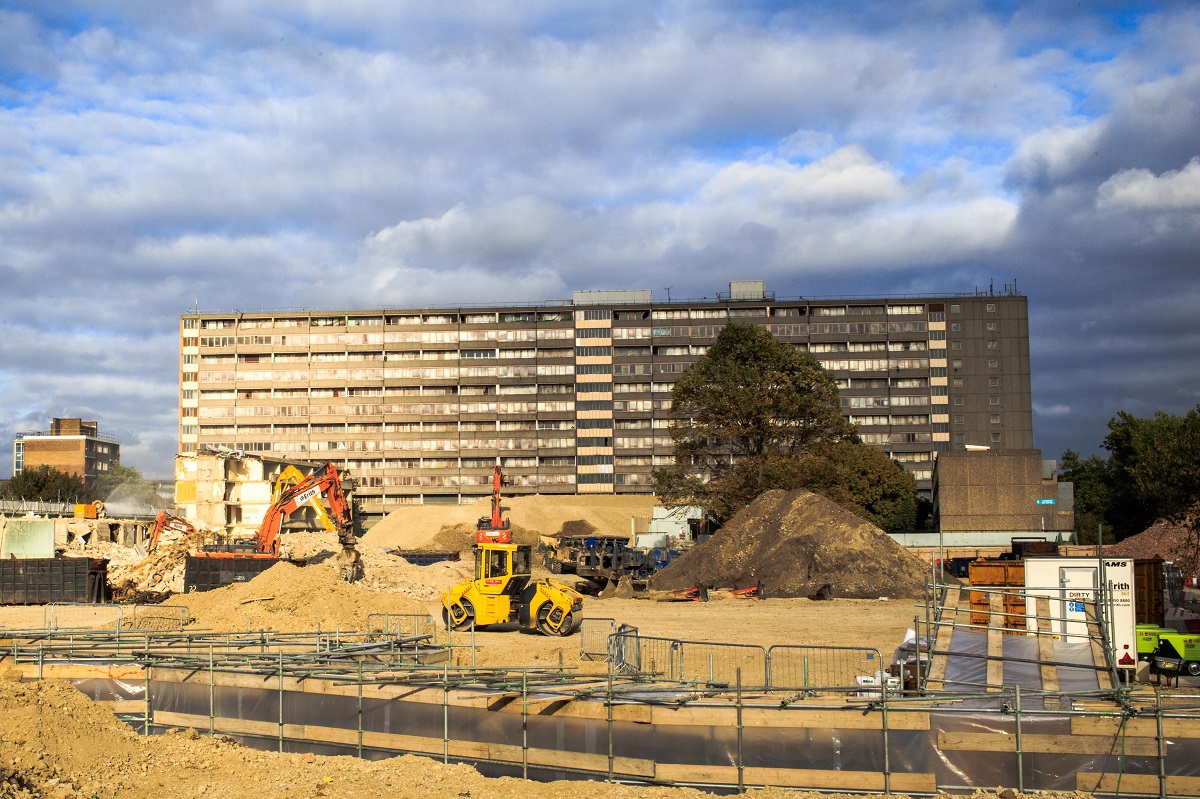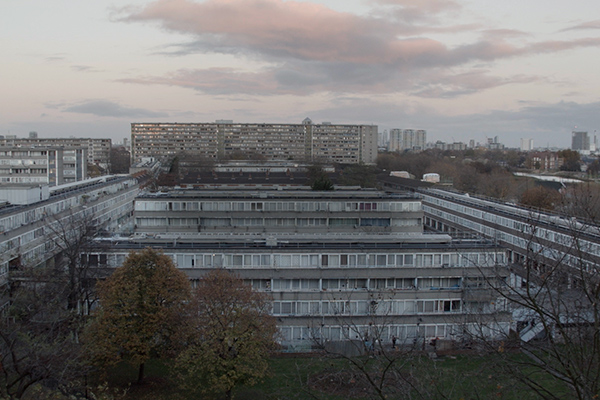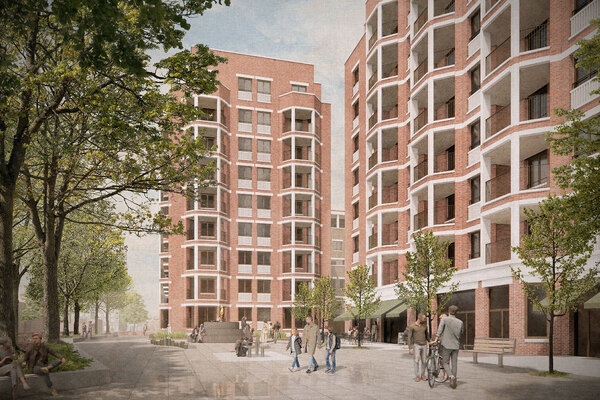You are viewing 1 of your 1 free articles
High Court challenge lodged against latest phase of south London estate demolition
A law centre has issued a claim in the High Court on behalf of a secure council tenant and campaigner who has been fighting against the demolition of an estate in south London.
In a release, the Public Interest Law Centre (PILC) said it issued the claim in support of the resident in an attempt to “hold Southwark Council [the defendant] and Notting Hill Genesis [(NHG)] [the interested party] to account”.
This latest phase is one in a long history of redevelopment on the estate and would see the demolition of five buildings, including Aysen Dennis’ home, which she has recently opened for an anti-gentrification exhibition.
Southwark Council signed a £1.5bn deal with NHG in 2014 to oversee the vast regeneration project over an 18-year timespan.
The Aylesbury Estate was the site of a long battle between local leaseholders and the council, which was eventually granted compulsory purchase powers to buy properties by then-housing secretary James Brokenshire in 2018.
NHG submitted a planning application in August last year for 614 new homes forming the next phase of the Aylesbury Estate regeneration in south London.
If approved, the new plans for Phase 2B would deliver 50% affordable homes, in line with original targets set by the partnership in relation to the wider scheme.
But Ms Dennis plans to argue that this phase was already highly contentious due to the proposed reduction of social-rented homes in favour of shared ownership and at least 50% private housing.
It will also be argued that those decanted from their homes were not consulted with on plans, which will see significant carbon emissions released due to mass demolition, which locals have said will cause inexcusable harm to the planet.
But a spokesperson for NHG said of Phase 2B: “We are very proud of our plans for Phase 2B of the Aylesbury Estate regeneration project, which will be made up of five buildings delivering more than 600 new, high-quality, safe, energy-efficient and warm homes to replace the existing homes which are no longer fit for purpose.
“Fifty per cent of these new homes will be affordable housing for people in need. We are committed to creating a fantastic, thriving mixed community with quality public space, top-class facilities and improved play and sport areas.”
Ms Dennis will also challenge the council’s planning authority’s decision to grant NHG a Section 96A non-material amendment to the historic overarching 2015 outline planning permission covering the Aylesbury Estate.
This amendment, which added the word “severable” to the permission, makes it much easier for the developer to “mix and match” new planning permissions across the estate that differ from the original masterplan.
This will be argued on the grounds that Southwark Council unreasonably came to the conclusion that adding the word ‘severable’ to a historic planning permission was “non-material”.
In addition, as the historic planning permission was not severable, they must apply for an entirely new permission for the entire scheme, as suggested by an earlier Supreme Court judgment.
This judgement clarified that a planning permission to develop a plot of land is not severable into separate parts of the wider site.
This causes problems for developers which have been relying on “drop-in” planning permissions to change parts of large development schemes that are inconsistent to what was originally consented.
For residents like Ms Dennis, PILC said this renders historic consultation of residents meaningless and gives power to developers to move further away from original plans years into redevelopment.
Ms Dennis said: “Aylesbury Estate was built for working-class communities to live safely and securely. Now it is the site of a battle between our communities and the councils and private developers who seek to demolish and privatise our homes.
“We cannot allow them to spread insecurity and socially cleanse us. We demand no demolition, no privatisation – refurbishment, security and justice.”
Alexandra Goldenberg and Saskia O’Hara, who are leading the project at PILC, said: “It is already difficult for communities to play a meaningful role in the planning process, and this is never more true than for a resident of a London estate which has been a target for demolition by councils and private developers over decades.
“Developers should not be able to sidestep the findings of the Supreme Court in this manner. For the council to permit this is an affront to its public.”
Responding to the High Court claim, an NHG spokesperson said: “We have been made aware today that proceedings have been issued in relation to Southwark’s recent approval of a non-material amendment to the Aylesbury Outline Planning Permission. We are currently considering the documents that have been lodged with the High Court.”
Kieron Williams, leader of Southwark Council, said: “We’re working with residents on the Aylesbury [Estate] to build new homes for them to move to, with more new council homes on site being built on the estate than on most others in the country, as well new housing association social rent homes, too.
“We’re building these replacements because the original homes on the estate were badly built in the ’60s. All of the phases meet or exceed our planning policy requirement for half of the development to be affordable homes.
“We measure this by the total number of ‘habitable rooms’, because our residents need family-sized homes and councils that just count the number of homes end up with lots of one and two-bed flats that are no good to families.”
Sign up for our development and finance newsletter
Already have an account? Click here to manage your newsletters












